Blog Developing gender responsive water monitoring information system to mitigate drought risks in pastoral areas

The Alliance of Bioversity International and International Center for Tropical Agriculture (ABC) organized a two-day workshop on “Project Sensitization and Gender Analysis Tools Validation Workshop” from 1-2 September 2023 at Adama, Hillside Hotel, Ethiopia. More than 20 gender, climate, and water-related professionals comprising decision-makers, researchers, practitioners, and representatives from ministries, government offices, the United Nation, NGOs, the private sector, regional sector offices, and academic and research institutions attended the workshop.
Water is the basis of life. It is essential to the existence and health of ecosystems, and to all life that depends on them. Water has an indispensable role for all productive and reproductive activities like agriculture, industry, energy generation, hygiene, and sanitation. Likewise, access to clean drinking water is a prerequisite to meeting basic human rights.
Despite the above facts, millions of pastoral people (female and male) who live in arid and semi-arid parts of Ethiopia are challenged by water shortage due to frequent climate change, and this affects the livestock production and livelihoods. Evidence indicates that gender relations exacerbate the situation of accessing, conserving, and managing water, particularly in pastoral areas.
Recognizing the need to integrate gender more effectively within Livestock Water Monitoring and Risk Management System (LWSM) in Ethiopia project, The Alliance of Bioversity International and International Center for Tropical Agriculture(The Alliance) organized a two days’ workshop on “Project Sensitization and Gender Analysis Tools Validation Workshop” from 1-2 September 2023 at Adama, Hillside Hotel. More than 20 gender, climate and water related professionals comprising decision makers, researchers, practitioners, and representatives from ministries, government offices, United Nation, NGOs, the private sector, regional sector offices, and academic and research institutions attended the workshop.
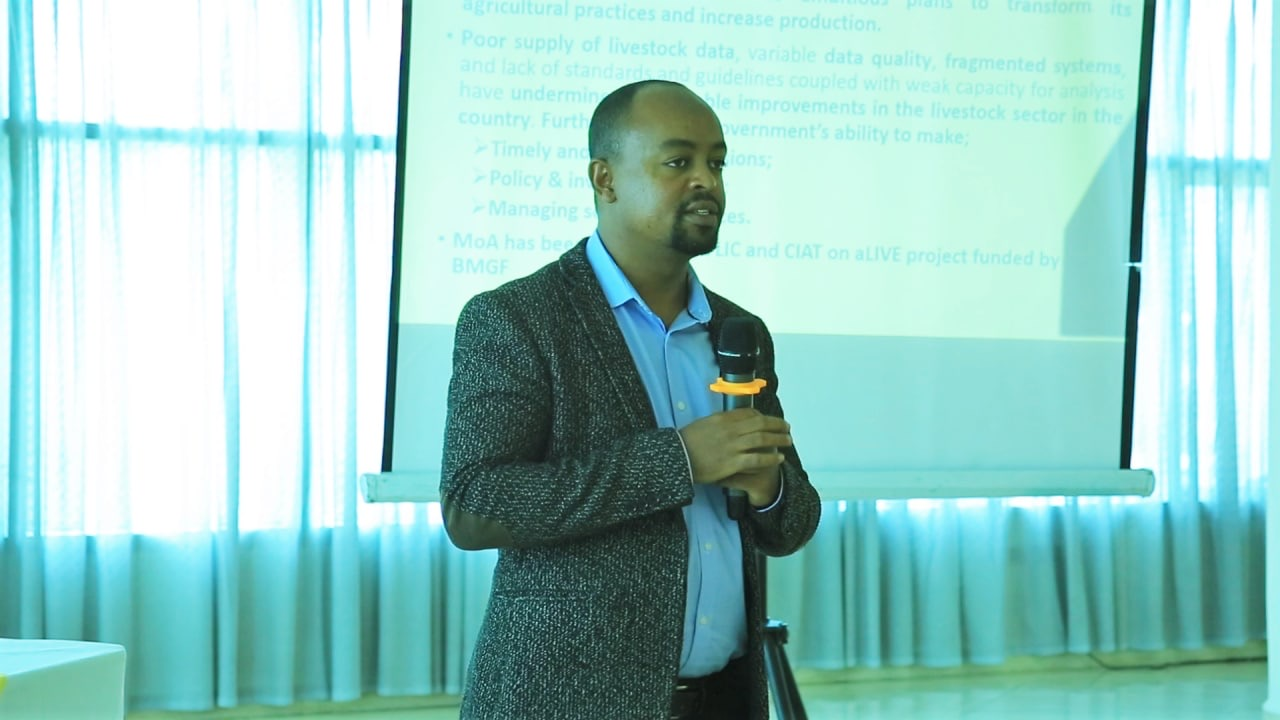
Credit: Sintayehu Alemayehu
Sintayehu Alemayehu (Scientist at The Alliance and Team Leader of the LWSM project) highlighted” developing gender responsive water management is crucial to potentially reach out to the most vulnerable group of society due to climate change. At the higher level, such kind of platform will help the decision makers to do gender-responsive planning and inform their policy as well as intervene timely before devastation occurs, which has been happening for many years.
“Researchers should think beyond the binary model of preference (men and women)-and say which men and which women? And consider their age, vulnerability, marginalization, special needs, wealth/class, marital status, number of children and language.” Eileen Nchanji, Gender scientist in The Alliance.
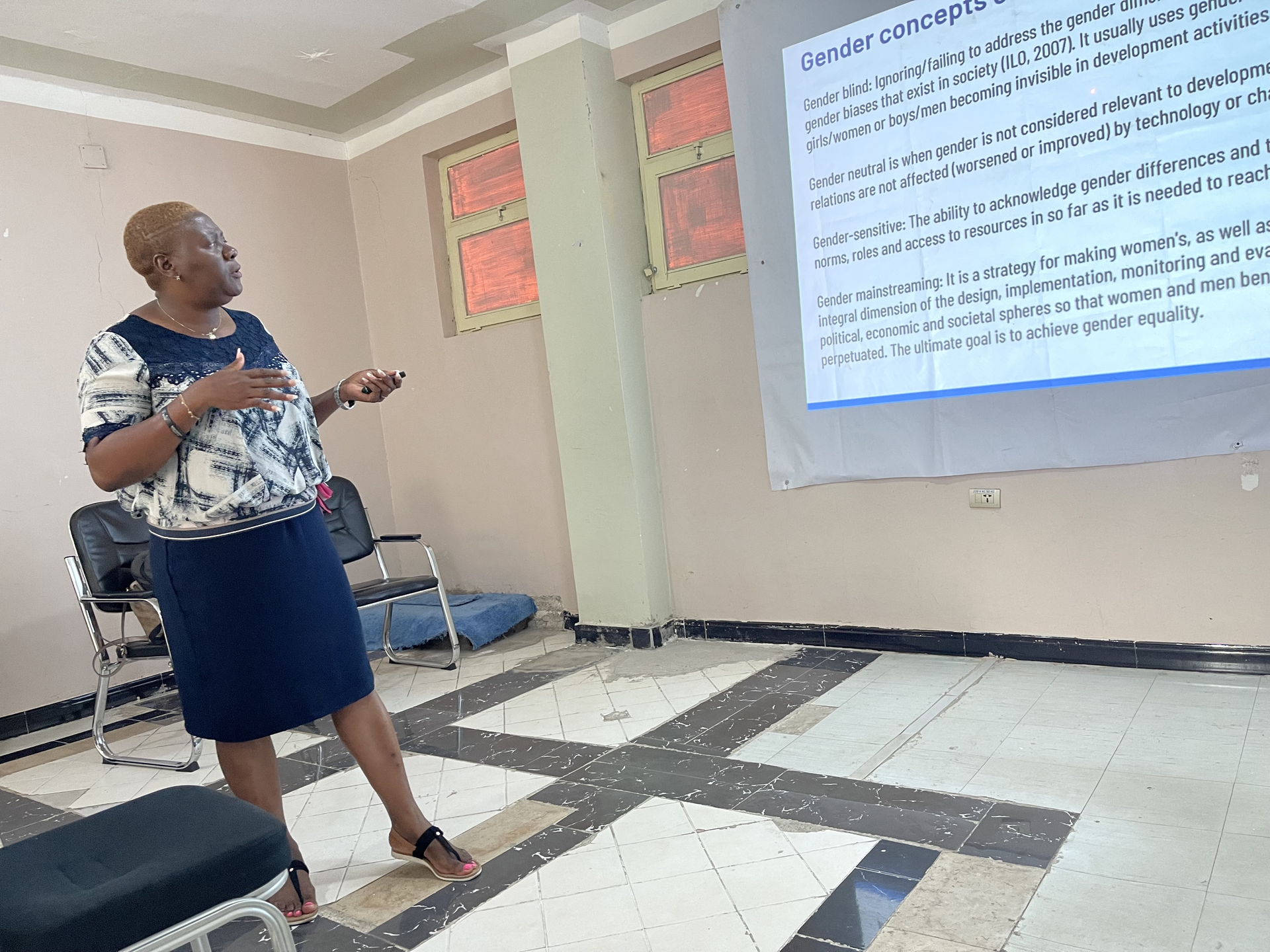
Credit: Sintayehu Alemayehu
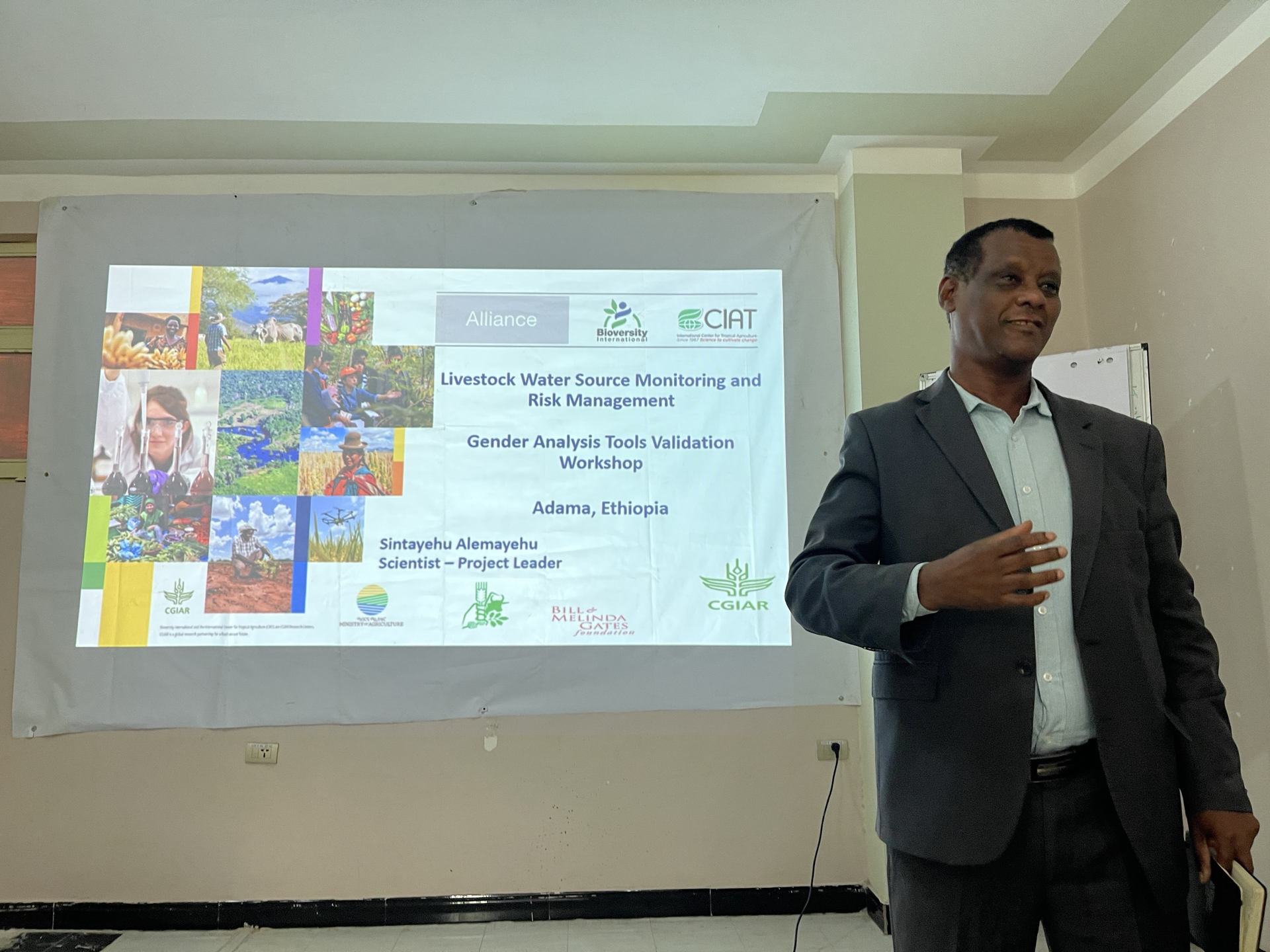
Credit: Sintayehu Alemayehu
Ethiopia is in climate emergency, and therefore addressing these issues call for forming very genuine partnership to ensure sustainable resilience building of target communities, including women”Dr. Girma Mamo (PhD) Climate, Geospatial and Biometrics Research Directorate, Ethiopian Institute of Agriculture (EIAR) said at the workshop.
Participants made a plenary discussion about gender roles and responsibilities in the pastoralist context, particularly Borena, and there were break-out sessions to list the water sources available in specific woreda of Borana zone, and identify who has access, control, and benefit.

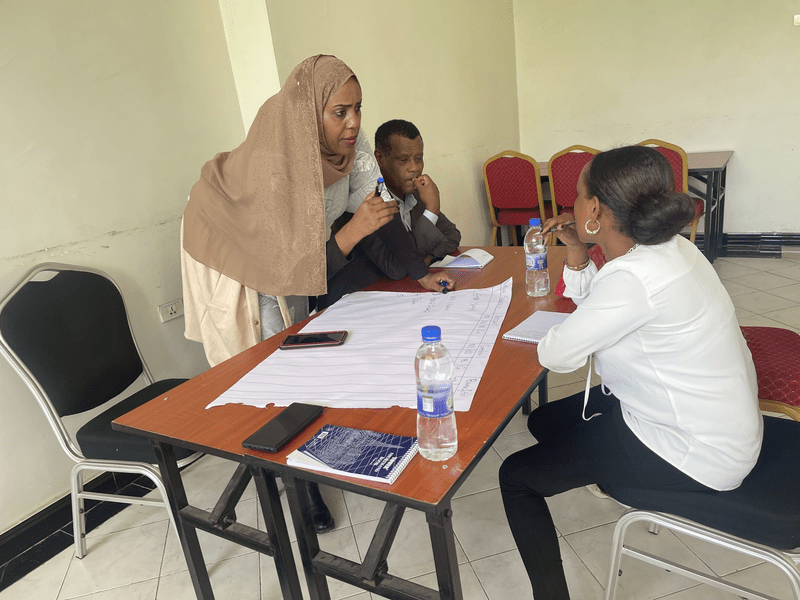
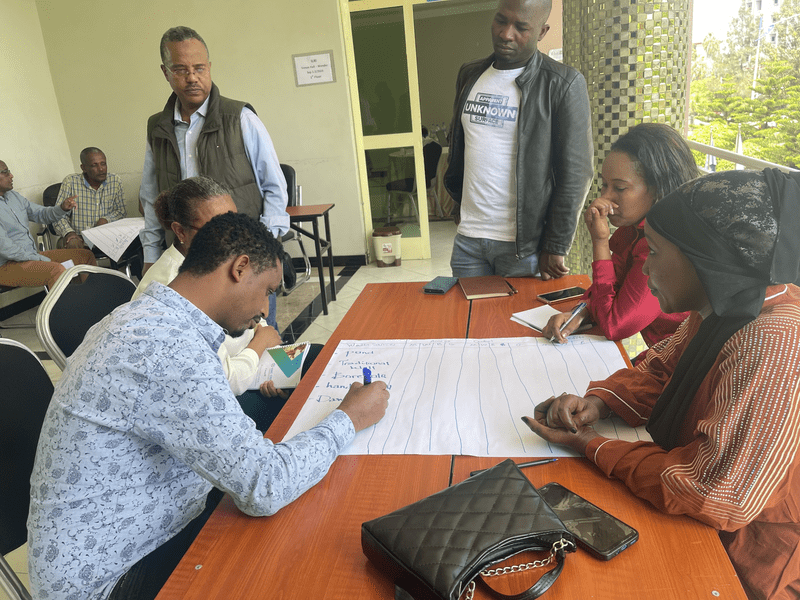
Photos: Breakout sessions while participants discuss about available water sources in Borena, and access, control, and benefit of women, men, boys, and girls over water sources. Credit: Sintayehu Alemayehu
Preliminary findings
LWSM gender Situational Assessment of Water access, Utilization and Management in Borana zone findings indicated that water ponds as well as other alternative water sources like water wells or boreholes, the facts that women are absent from the water management committee and potential entry points to improve women’s control over water sources in Borena were also discussed.
Bridging a gap: put theory into practice.
The Alliance with its local partners, sensitized the importance of Gender mainstreaming in LWSM project for sustainable livelihoods and climate risk management and develop gender analysis tool to explore gender roles, relations, constraints, and opportunities in livestock production and water resource management. Developing this tool is a step towards filling an important and persistent knowledge gap – as it looks at ways to bridge gender gap related to roles in livestock production, decision-making power, participation in water resource management and entrepreneurship, access to resources, information, and services for adaptation to climate change to fill wide gender gaps in technology access and use, with women being the most disadvantaged.
The Team
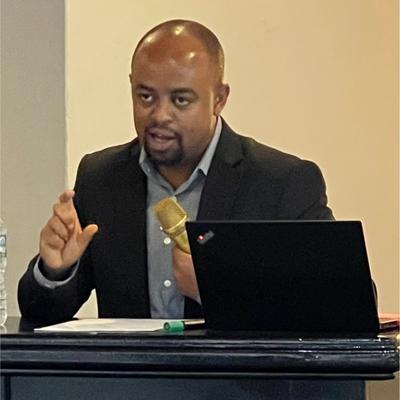
Sintayehu Alemayehu
Research Team Leader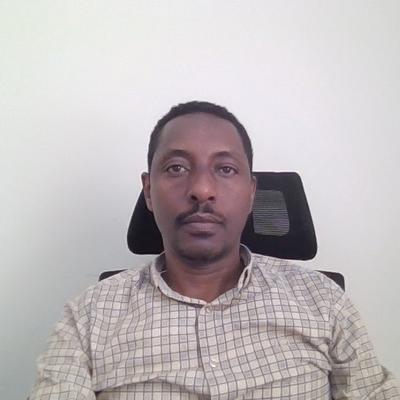
Sintayehu Workeneh Dejene
Research Management Coordinator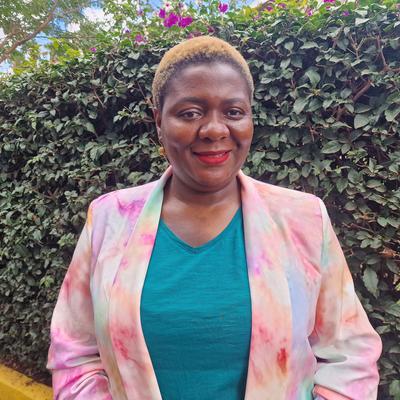
Nchanji Eileen Bogweh
Gender and Social Inclusion Expert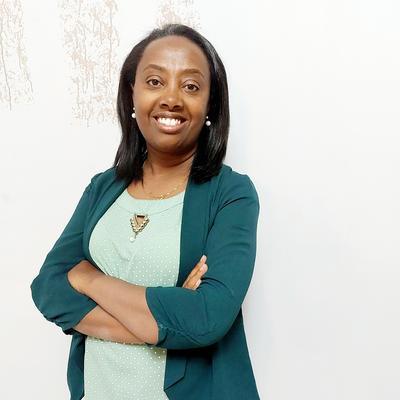
Selamawit Firdissa Duresa
Gender Specialist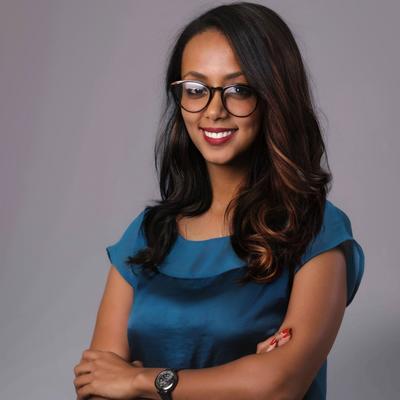
Lidya Tesfaye
Research OfficerNext steps
The gender analysis results will provide robust evidence for informing the LWSM project implementation plan and activities and monitoring and evaluation tools. Therefore, the gender analysis tool will undergo revision to incorporate the valuable inputs received from workshop participants. This process aims to enhance the tool's effectiveness and ensure its relevance in addressing gender-related issues pertaining to the specific contexts. Furthermore, the following key steps will be taken forward:
-
Conduct the gender analysis by collecting data from selected woredas in Borena.
-
Review project indicators based on the results of the gender analysis and integrate them in the project M&E framework.
-
Develop gender mainstreaming guidelines to inform LWSM project water information dissemination strategy and content.
-
Organize a continues seminar/training/workshop to sensitize relevant stakeholders about gender, discuss the findings of the gender analysis for prioritization of issues.
-
Implement an inclusive Pastoralist Community of Practice (PCoP) that promotes active engagement of marginalized groups, to underpin a transformation towards more results-based, sustainable, and scalable water management initiatives.
